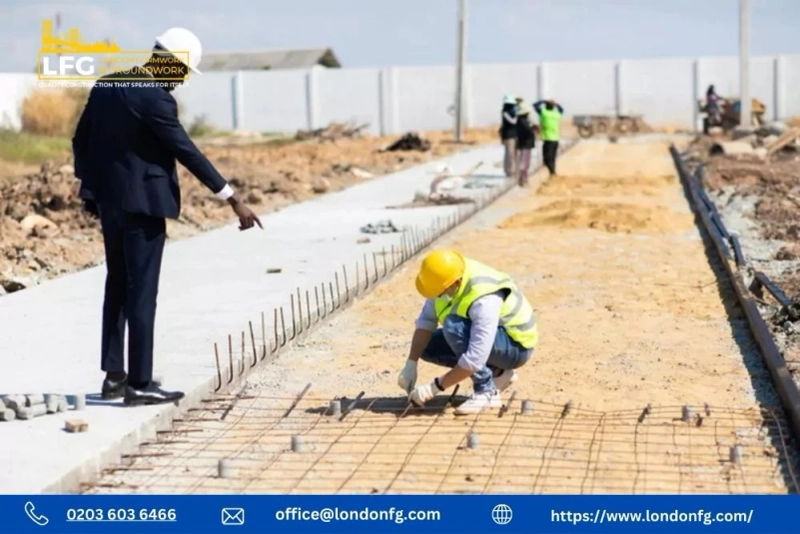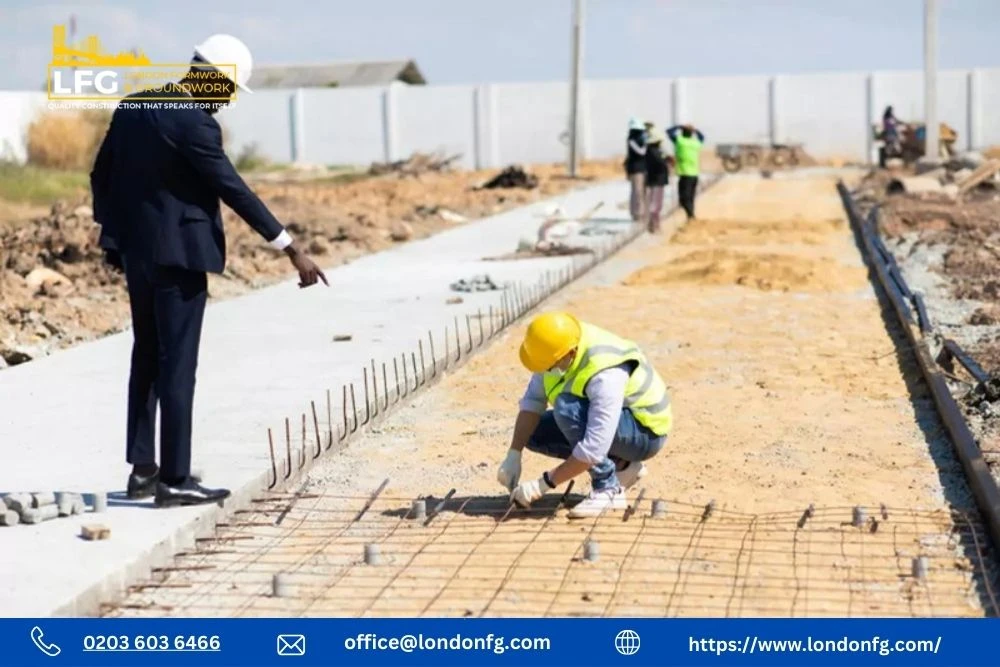When it comes to constructing a solid and reliable foundation for any building project, hiring professional foundation contractors in London is essential. Foundations are the backbone of any construction, whether it's a residential, commercial, or industrial building. From new builds to basement excavation, foundation contractors ensure the structural integrity of your project from the ground up. In this post, we'll explore the role of foundation contractors, the different types of foundations, and why choosing the right contractor is crucial for a successful construction project.
The Role of Foundation Contractors in London
Foundation contractors are specialists in foundation construction, offering services that range from the initial excavation to laying the base of the building. They work with structural engineers to ensure the foundation is designed and built to support the structure above it. The foundation’s purpose is not just to bear the weight of the building but also to protect it from shifting soil, water damage, and other environmental factors.
In Greater London, foundation contractors handle a variety of projects, from residential homes in West London to commercial properties in Central London. No matter the area, they ensure each foundation is built to last, regardless of the complexity of the ground conditions.
Different Types of Foundations Used in London
Foundation contractors in London specialise in various types of foundations, each suited to different types of buildings and soil conditions. Here are some of the most common foundation types:
1. Raft Foundations
Raft foundations are often used in areas where the soil is weak. They spread the load of the building across a large area, creating a solid base. This type of foundation is commonly used for basement construction and basement excavation, as it provides a stable platform for construction in areas where the ground may be unstable.
2. Strip Foundations
Strip foundations are one of the most common types of shallow foundations. They involve pouring a continuous strip of concrete along the walls of the building. Ideal for smaller buildings, strip foundations are typically used in areas with good soil conditions. They provide a simple, cost-effective solution for foundation construction.
3. Pile Foundations
In areas with weak soil or where the structure is particularly heavy, pile foundations are used. These are deep foundations that use long, slender columns (piles) driven deep into the ground to provide support. Pile foundations are especially useful for large construction projects like multi-storey buildings or new builds in East London or North London, where the ground conditions are challenging.
4. Pad Foundations
Pad foundations are individual concrete pads placed under each load-bearing point of the building, like columns. They’re often used in projects where the structure is light or the ground has consistent strength. This type of foundation is also effective in site clearance projects, where the area needs to be levelled before construction can begin.
Why Foundation Repair is Crucial
Foundation issues can occur over time, often caused by soil shifting, water damage, or structural issues. Foundation repair is crucial for maintaining the stability of the building. Underpinning contractors in London offer a range of foundation solutions to address these issues, including mass concrete underpinning and reinforced concrete techniques.
Underpinning is especially important for older buildings or properties with an existing foundation that may no longer be strong enough to support the structure. Whether it’s in South London or Tunbridge Wells, foundation contractors assess the damage and provide tailored solutions to restore the structural integrity of the building.
Site Clearance and Excavation
Before any foundation can be laid, the site needs to be prepared. Excavation involves digging and clearing the area to ensure the ground is level and stable for foundation work. In West London, for instance, contractors may need to deal with existing structures, rocky soil, or underground utilities during the site clearance phase. Proper excavation ensures that the foundation work is solid and will last for decades.
The Importance of Structural Engineers and Project Managers
In any foundation project, collaboration between contractors, structural engineers, and project managers is vital. Structural engineers assess the type of foundation required based on the building’s design and soil conditions. They provide expertise on the right materials and techniques, from reinforced concrete to deep foundations, ensuring that the foundation meets local authorities’ standards and regulations.
Project managers oversee the construction process, ensuring that all stages, from foundation construction to basement contractors completing basement excavation, are carried out efficiently. They also handle coordination with local authorities and other contractors to keep the project on track.
Foundation Contractors for Every Need
Whether you're planning a new build, dealing with foundation repair, or constructing a basement, foundation contractors in London provide the expertise and skills necessary to ensure your project’s success. They offer solutions for both shallow foundations and deep foundations, including pile foundations, pad foundations, and more.
From North London to South London, the right foundation contractor ensures that every part of your building project is structurally sound and ready to support the building above. By hiring the right professionals, you’re ensuring that your building remains solid, safe, and stable for years to come.
FAQs
1. What types of foundations do foundation contractors in London use?
Foundation contractors in London use raft foundations, strip foundations, pile foundations, and pad foundations, depending on soil conditions and project requirements.
2. Why is foundation repair necessary for buildings in London?
Foundation repair is crucial to maintain the structural integrity of a building, especially in older structures or areas with shifting soil.
3. What does the process of excavation involve in foundation construction?
Excavation involves digging and clearing the site to prepare the ground for foundation work, ensuring the area is level and stable for construction.
4. What is underpinning and when is it needed?
Underpinning is the process of strengthening an existing foundation, often needed for older buildings or those with foundation issues.
5. How do structural engineers assist foundation contractors?
Structural engineers assess the building’s design and soil conditions, recommending the best foundation type and materials to ensure long-term stability.
Conclusion
In the world of construction, foundation contractors play an indispensable role. Whether it’s groundwork contractors laying strip foundations or basement contractors working on basement excavation, these experts provide the critical services that support the entire structure. The right foundation ensures that your building stands tall, no matter the challenges of the site.
So, when you’re planning your next construction project in London, make sure to work with experienced foundation contractors like London Formwork & Groundwork who understand the importance of a solid base.



